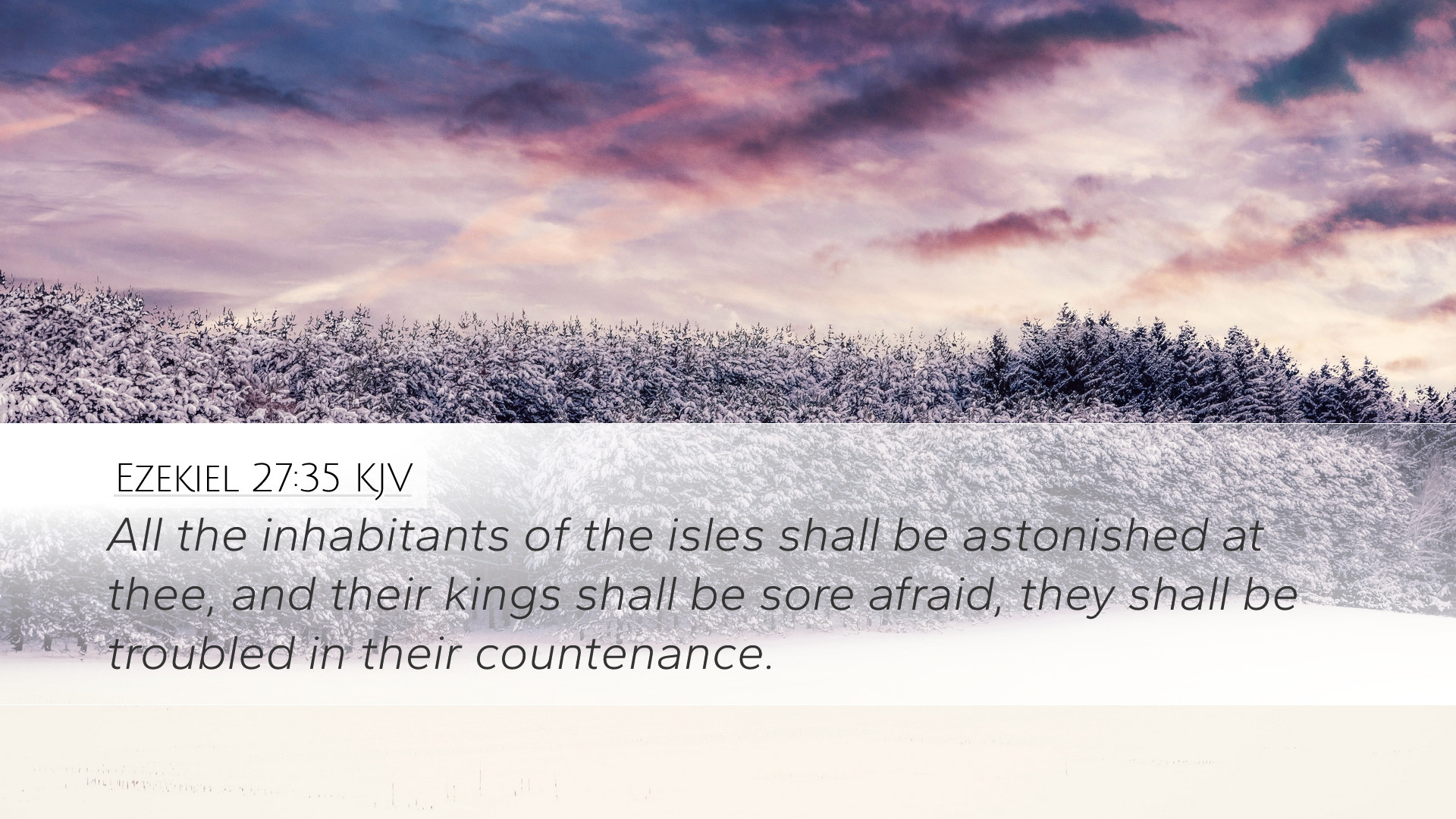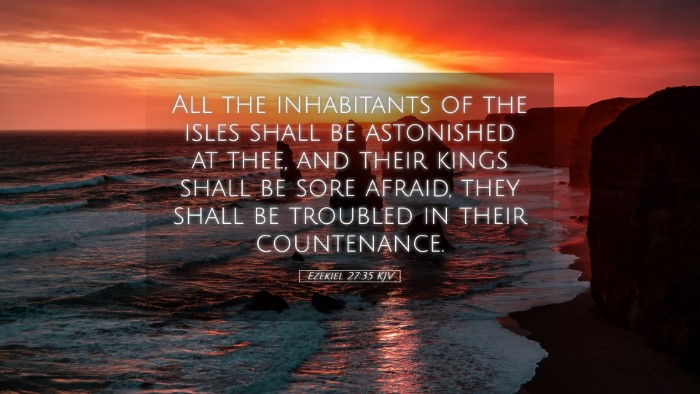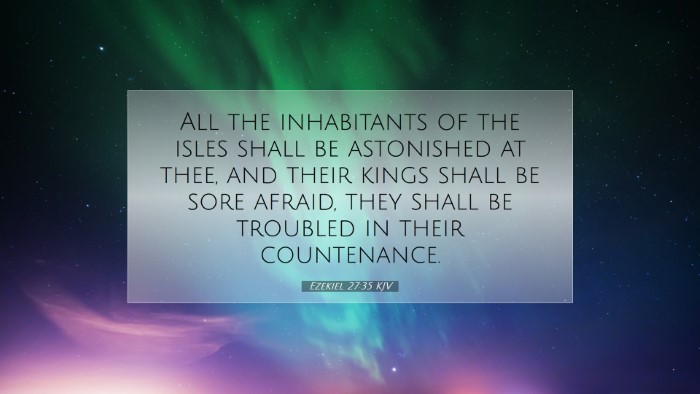Bible Commentary on Ezekiel 27:35
Verse Reference: Ezekiel 27:35 - "All the inhabitants of the isles shall be astonished at thee, and their kings shall be sore afraid; they shall be troubled in their countenance."
Introduction
This verse captures the dramatic response of distant nations and their leaders to the fall of Tyre, a city that was renowned for its wealth, trade, and maritime prowess. Ezekiel 27 serves as a lamentation for Tyre, reflecting on its grandeur and the subsequent mourning of its downfall. In this commentary, insights from Matthew Henry, Albert Barnes, and Adam Clarke will be synthesized to explore the theological and practical implications of this verse.
Contextual Analysis
The Book of Ezekiel is filled with vivid imagery and prophecies, emphasizing God's sovereignty and the moral implications of national behavior. Ezekiel 27 specifically focuses on the description of Tyre as a mercantile powerhouse, serving as a metaphor for pride and the consequences of arrogance against God. As God orchestrates Tyre’s downfall, neighboring nations recognize the fragility of earthly power and the ultimate supremacy of divine authority.
Historical Background
Tyre was a significant Phoenician city known for its trade routes and commerce across the Mediterranean. Its merchants and seafarers established prosperity, but this very success led to a false sense of security and self-sufficiency, promoting idolatry and hubris. The prophecy of its ruin serves as a warning against reliance on material wealth and self-exaltation.
Interpretive Insights
Matthew Henry's Commentary
According to Henry, Tyre's destruction signifies the downfall of pride and luxury. He interprets the self-assurance of Tyre, which made it oblivious to the impending judgment of God. The astonishment of the isles' inhabitants reflects a broader revelation about human vulnerability and the illusion of strength in wealth. Henry emphasizes that nations are often paralyzed by fear when they witness the swift judgment of God upon those who seem untouchable.
Albert Barnes' Exposition
Barnes elaborates on the concept of astonishment among the isles, highlighting that they are not merely shocked at Tyre's fate but are also reflective of their own precarious situations. This fear spreads among the kings, illustrating a universal truth about the fragility of human empires. He points out that while Tyre’s traders previously struck fear into others, their demise serves as a sobering reminder that no earthly kingdom is immune to divine retribution. The verse reinforces God's role as the ultimate judge over nations.
Adam Clarke's Analysis
Clarke notes that the term “astonished” indicates a deep-seated fear and confusion in response to Tyre's judgment. He emphasizes that the reaction of the kings and inhabitants illustrates their recognition of the divine authority at play. Clarke draws upon the cultural practices of the time, explaining that the economies tied to Tyre's commerce were now at risk of collapse, showcasing the interdependence of nations. He interprets this passage as a call for introspection among leaders, warning them to heed God’s commands lest they face similar fates.
Theological Implications
This verse underlines several theological themes worth noting:
- Divine Sovereignty: Ezekiel 27:35 emphasizes the truth that God holds power over nations and that His judgment is inevitable for those who forsake His ways.
- The Fragility of Human Power: The astonishment of the nations highlights the temporary nature of human pride and wealth. No matter how strong or fortified, every institution is vulnerable to God's decisions.
- Call to Humility: This verse serves as a reminder for believers and leaders alike to remain humble and acknowledge the Lord’s supremacy in all matters of life and governance.
Practical Applications
For pastors, students, theologians, and Bible scholars, the message of Ezekiel 27:35 can be applied in several meaningful ways:
- Encouragement to Seek God: Individuals are encouraged to put their trust not in earthly possessions or status but in God, who is unchanging.
- Leadership Lessons: This text serves as a vital reminder for leaders to strive for righteousness and to remember the potential consequences of prideful arrogance.
- Community Reflection: Congregations can use this as an opportunity to reflect on their collective values, assessing whether they are built on the foundation of God’s word or material success.
Conclusion
Ezekiel 27:35 acts as a poignant reminder of God’s ultimate authority and the impermanence of human grandeur. The awe and dread of the nations at the fall of Tyre challenge us to reflect on our own lives, institutions, and ambitions in light of God’s righteous judgments. By assimilating the insights from the commentaries of Henry, Barnes, and Clarke, we gain a richer understanding of the moral and theological depths of this verse, encouraging a posture of humility and reverence before our sovereign God.


